Hunger Stones of Děčín
When the river dries up, these stones start talking.
The most famous hunger stone in Děčín, Czechia, once lived a quiet life. When things were going well, the River Elbe flowed over it, hiding much of it from view. Only in dry years, when the water dropped low enough, was its message revealed. “Wenn du mich siehst, dann weine,” the main inscription on it reads: “If you see me, weep.”
Děčín, which is right across the border from Germany, is home to a number of “hunger stones”—carved stones that both record the droughts of history and bemoan them in the present. In the past, low water levels meant bad harvests, hunger, and headaches for those who used the river for shipping or travel.
In the present, they’re bad news as well: During the hot, dry summer of 2018, water levels once again fell precipitously, revealing a number of hunger stones along with unexploded mines and grenades from World War II.
Some of the stones are etched with lists of dates, providing a chronology of difficult years. The one mentioned above has carvings that date back to at least 1616, making it one of the oldest hydrological markers in central Europe. Thanks to a dam upriver, it’s now visible for about one-third of the year, and has become a popular tourist attraction.When the stones have more elaborate messages, they’re often about weeping. “We cried – We cry – And you will cry,” says one. “Who once saw me, he cried. Whoever sees me now will cry,” says another. That’s one way to bring the water level back up.
Know Before You Go
There are a number of hunger stones in Děčín. The main one is located underneath Tyrs Bridge, and is accompanied by a historic placque.
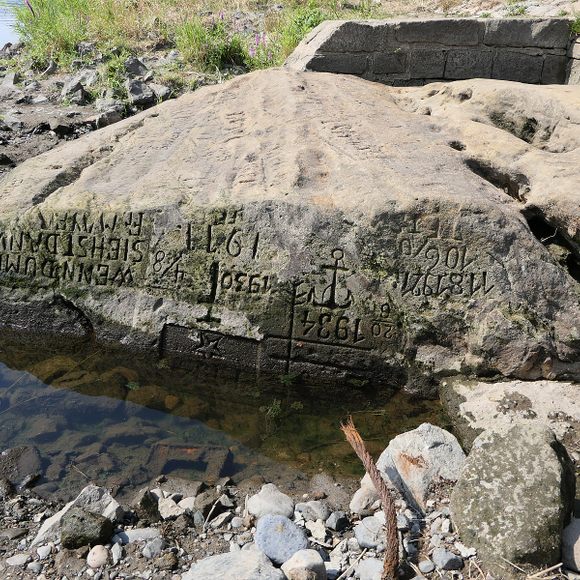

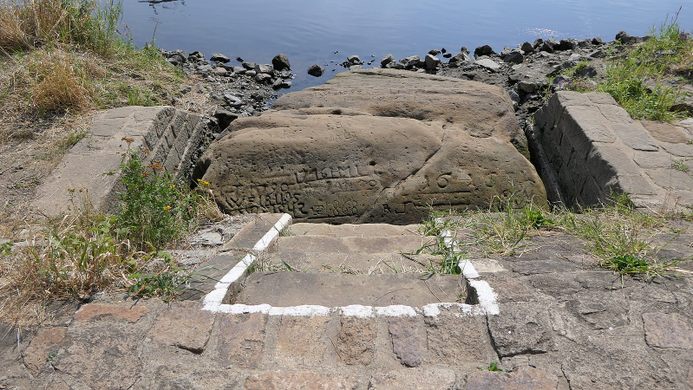





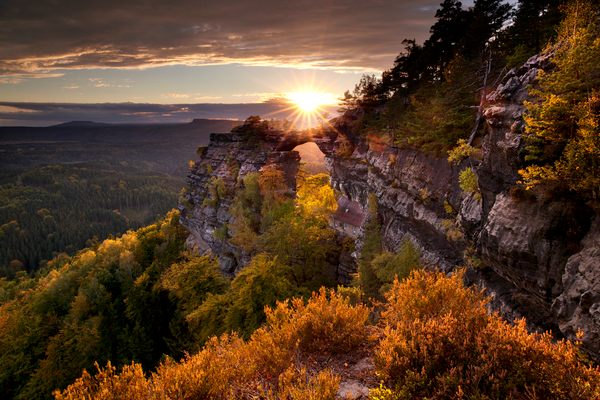
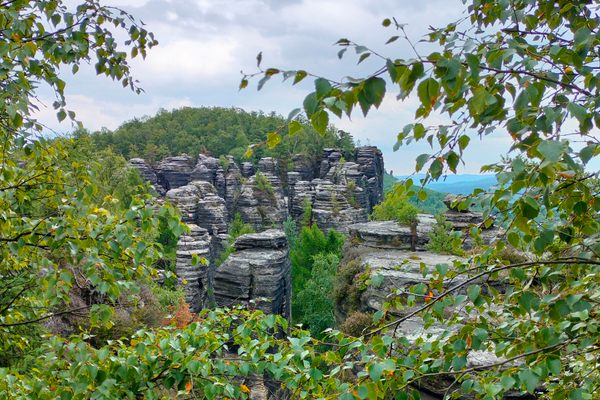
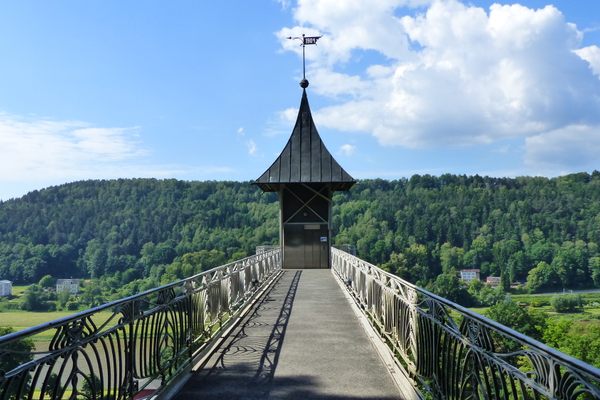






Follow us on Twitter to get the latest on the world's hidden wonders.
Like us on Facebook to get the latest on the world's hidden wonders.
Follow us on Twitter Like us on Facebook